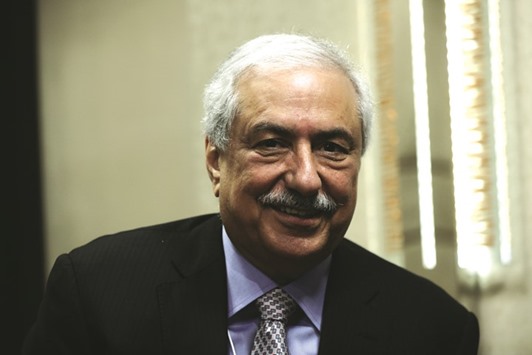Saudi Arabia’s economy is expected to continue growing in 2016, albeit at a slower rate than last year, the finance minister said yesterday.
“The Saudi economy is still growing at good rates, close to 3.5% in 2015, and we expect the growth to continue positively however at a lower rate this year,” Ibrahim al-Assaf told a business conference in the Saudi capital.
While al-Assaf rarely speaks in public, giving his remarks additional weight, his comments reflect the sentiments expressed by other Saudi officials and economists in recent weeks.
The kingdom’s economy is likely to grow by about 2% in 2016, Ahmed Abdulkarim al-Kholifey, deputy governor for research and international affairs at the Saudi Arabian Monetary Agency, said earlier this month.
Meanwhile one of Saudi Arabia’s most influential economic policy-making bodies has approved 133 recommendations on improving the competitiveness of the kingdom’s economy, which will be announced within the next six months.
The comments, by Abdullatif al-Othman, governor of the Saudi Arabian General Investment Authority (SAGIA), are the first time that an official of ministerial rank has talked about details of the National Transformation Plan (NTP) since it was first announced three months ago.
NTP is a plan involving a number of significant reforms to the economy of the world’s top crude oil exporter to help it weather the impact of lower oil prices and diversify away from reliance on hydrocarbon revenues.
NTP is being overseen by the Council of Economic and Development Affairs (CEDA), headed by Deputy Crown Prince Mohammed bin Salman, and is expected to implement changes including privatisations of state assets and reductions of state subsidies when formally announced in the coming weeks.
CEDA has approved about 133 recommendations to improve business competitiveness, Othman told a news conference on Tuesday. He is head of the body which aims to promote foreign investment into Saudi Arabia. It reports into CEDA.
These proposals are centred around eight main pillars of the private sector and will include measures on transparency and consistency of laws.
“They are very low hanging fruit but major initiatives that will be announced within the next six months. You will see major decisions on very critical issues that are of interest for both local and international investors,” said Othman.
Saudi Arabia was ranked 82nd in the World Bank’s Ease of Doing Business report for 2016, with the G20 member below countries including Mongolia, St Lucia and Tonga. Among the main areas of concern were around resolving insolvency, where it was ranked joint-last by the World Bank, and trading across borders.

Al-Assaf says the economy is expected to continue growing in 2016, albeit at a slower rate than last year.
